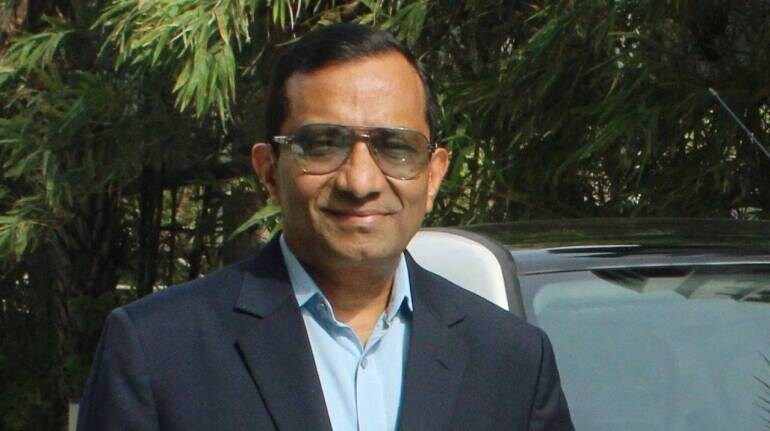
Nitin AgrawalMoneycontrol Research
The government's push on electric vehicles (EV) has caught the attention of both the investor community and the general public. A recent announcement from Ashok Leyland on its strategic alliance with SUN Mobility has to be seen in the larger context of a tectonic shift towards a greener environment. More importantly, it has huge ramifications for a large number of companies catering to the automobile ecosystem. However, this ambitious plan which envisages a transition to an EV revolution, however, is fraught with myriad challenges and would require both policy and financial support.
Global EVs Scenario – China leading the pack
Oil consumption for transportation purposes stands at 55 percent globally. Road transport is the third-largest source of CO2 emission which thereby puts the sector in the spotlight as it has definite underpinnings for global climate change. Stringent emission regulations, lower energy demand and focus on clean energy are favoring a strong push towards EVs.
About 750,000 new registrations came in for electric cars in 2016 -- a global feat. Number of global electric cars have crossed the 2 million mark in 2016, after crossing the 1 million mark in 2015. Norway leads the pack in electric cars on its road with 29 percent of market share globally, followed by Netherlands (6.4 percent) and Sweden (3.4 percent). China, France, and the United Kingdom all have market shares close to 1.5 percent.
The China Factor
Currently, China leads in electric vehicles and represents close to 40 percent of cars sold in the global EV market and has taken over the US. Electric scooters (around 200 million in stock) with competitive prices (USD 500) to internal combustion engine (ICE) vehicles have generated significant interest from the public in China. Additionally, China seems to be focusing on electric buses as indicated by the number of buses in stock (300,000). China is by far the leader in this space.
Digging deep, we found out that the adoption of EVs has mainly been driven by favorable policy support, investment in research and development to reduce cost, and financial incentives.
If China can, why can’t India?
Since China is already manufacturing electric scooters at USD 500, there is always a possibility of exporting the same to India. Our back-of-the-envelope calculations suggest that the landing price of this would be close to Rs 41,000, which will be comparable Indian ICEs. This will not only disrupt the auto market in India but also impact Indian players badly.
However, most of the manufacturers across the globe peg the average price at USD 35,000 (Tesla’s Model 3 is available at a price of USD 35,000) for an electric four wheeler -- very high compared to comparable Indian ICEs.
Then, how should Indian players get themselves ready and what can the government do to achieve its ambitious target in a highly price-sensitive market?
India, under Narendra Modi, is implementing several structural changes and the push towards EVs is one of these. The government’s think tank NITI Aayog has set an ambitious target of making all vehicles on the road electric by 2030. This has come on the back of focus on lowering energy imports to reduce our dependency on global markets and move towards clean energy that reduces carbon
But there are challenges ahead beginning from the technical know-how required to delivering the vehicles at the right price point in order to create demand from the public.
Government Support
The government will have to support industry in setting up the entire ecosystem. It needs to incentivise players to invest in technology and R&D, which could bring down prices of EVs to a level that is competitive to ICE vehicles.
The government needs to facilitate setting up of charging stations, which could be done with the help of regulations that enable deployment of charging equipment. Additionally, focus on indigenous manufacturing of battery can substantially reduce the prices of EVs.
An assessment done by IEA in 2015 reveals that the prices of EVs remain at higher levels in almost all regions and that is mainly because of the battery cost. Despite a rapid decline in the battery prices in the last decade, battery is one of the reasons leading to higher EV costs compared to comparable ICEs. Hence, tax incentives and rebates are key drivers of growth in EV market.
Indian government is definitely thinking along these lines. Recent recommendations coming from NITI Aayog suggest that lower tax and lower loan interest rates on the purchase of EVs while capping the sales of petrol and diesel cars do go a long way in expediting this shift towards EVs.
The government’s intention coupled with the fear of competition from Chinese players have forced large Indian players to take a serious look at their EV strategy. As of now, Mahindra & Mahindra is the only electric car manufacturer in India. But it has struggled due to low customer demand and lack of infrastructure. Others, too, are also seriously exploring opportunities.
In sum, EV is the new reality for Indian automobile industry. The government needs to incentivize auto manufacturers to invest in technology to reduce EV manufacturing costs and provide adequate infrastructure -- especially charging stations -- if it wants the EV pipe dream to work. In a price-sensitive market like India, adoption of EVs will pick up as soon as prices are competitive to ICEs.
Discover the latest business news, Sensex, and Nifty updates. Obtain Personal Finance insights, tax queries, and expert opinions on Moneycontrol or download the Moneycontrol App to stay updated!